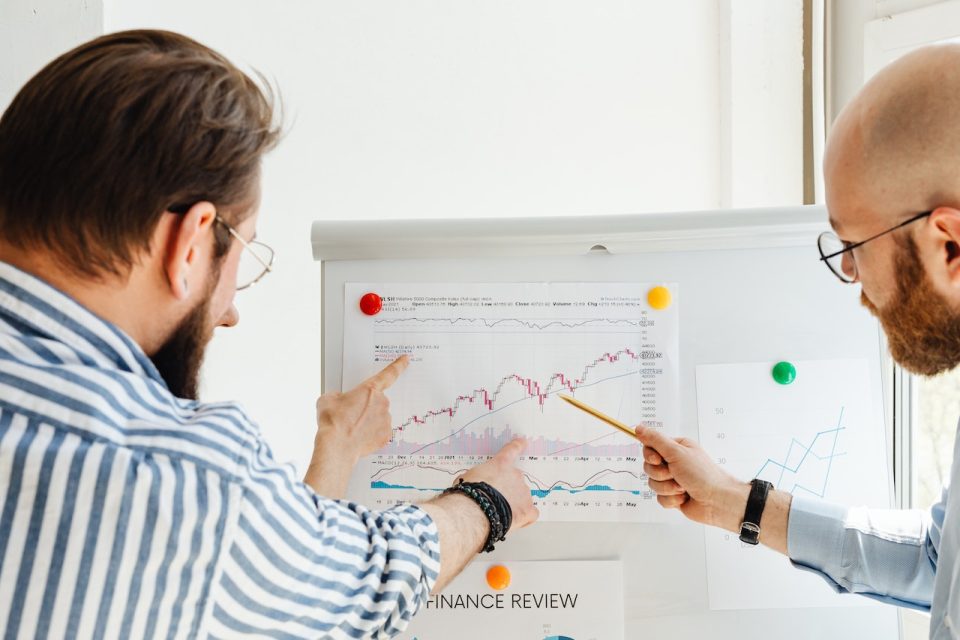Wall Street Banks Anticipate Delayed Deal-Making Profits: Wall Street executives are delivering a sobering message to investors who had been anticipating a third-quarter surge in deal-making profits: Brace for a longer wait until 2024 for any sustained gains. The five major banks with significant operations on Wall Street collectively reported a 2% drop in investment banking fees compared to the same period a year ago, dashing hopes generated by last summer’s optimistic chatter about “green shoots” in mergers, acquisitions, and initial public offerings (IPOs).
Morgan Stanley (MS) bore the brunt of the third-quarter disappointment, with its investment-banking revenue plummeting by a staggering 27%. The market reacted promptly, sending the bank’s stock plummeting nearly 7% in the largest single-day drop it has endured in over three years. While Goldman Sachs (GS) saw its revenues remain relatively flat and JPMorgan (JPM) recorded a decline, Citigroup (C) and Bank of America (BAC) managed to report year-over-year gains.
During an analyst call, Morgan Stanley CEO James Gorman expressed his belief in the emergence of “increasing evidence of M&A and underwriting calendars that are building.” However, he cautioned that the bulk of these activities are unlikely to materialize before 2024. Gorman humorously acknowledged a comment from an analyst who remarked that despite all the talk about “green shoots,” someone appeared to have forgotten to “water them.”
Even banks that showed gains on Wall Street were hesitant to exude optimism. Bank of America CFO Alastair Borthwick conceded that they had grown weary of making predictions about the return of investment banking to historical levels of activity. Borthwick noted, “We haven’t yet seen that confidence return to the equity capital markets.”
Citigroup CEO Jane Fraser echoed this uncertainty, stating, “It remains hard to predict when deal activity will sustainably rebound,” and she highlighted the consistent decline in CEOs’ optimism about 2024 compared to just a few months ago.
The third quarter was anticipated as the turning point when Wall Street’s dry spell would come to an end, driven by a wave of public offerings poised to break the IPO logjam. Although several companies did go public last month, including ARM, Instacart, Klayvio, and Birkenstock, some witnessed a dip in stock prices post-debut. This mixed performance raised concerns about the willingness of other companies to proceed with their IPO plans. Toward the end of the quarter, concerns were amplified by rising borrowing costs, fears of prolonged high interest rates, geopolitical tensions, and new recession worries.
Goldman Sachs, the lead banker on several of September’s IPOs, disclosed a decrease in its backlog of future deals during the quarter. JPMorgan’s CFO Jeremy Barnum noted that the current levels in investment banking are substantially lower than those in 2019, which is often considered the last “normal” year.
As market volatility persists, some major banks are increasingly relying on their trading desks. The combined revenues from trading activities were up approximately 1% at the five banks with substantial Wall Street units. Bank of America’s equity trading surged by 10%, while Citigroup saw a 12% jump in fixed-income trading revenue compared to the previous year.
The key factor many banks are waiting for is a signal from the Federal Reserve indicating an end to interest rate hikes. They believe that this will be the turning point when confidence returns for many of their large corporate clients. Gorman emphasized that when this happens, “the M&A and underwriting calendar will explode because there is enormous pent-up activity,” but he couldn’t predict exactly when this resurgence would occur, emphasizing the importance of interest rates as the catalyst.
Regrettably, Gorman, who had previously announced his departure as CEO within a year, noted, “Unfortunately, I’m not going to be around to enjoy it.”
Investors and financial institutions will be watching the coming months with bated breath, waiting for signs of economic recovery and the revival of deal-making on Wall Street.
Source: Yahoo Finance

